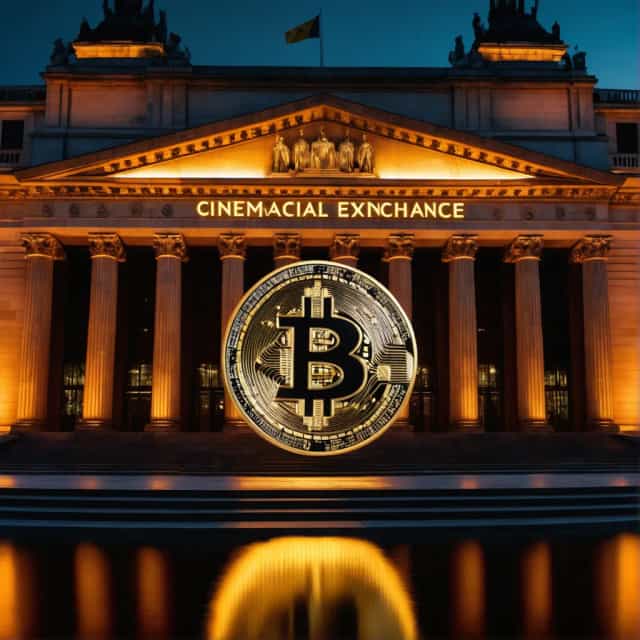
Image source: Block Media
Upbit Unveils GIWA Chain and GIWA Wallet: A Strategic Leap Toward Blockchain-Driven Financial Services
Pioneering the Next Chapter in Korean Blockchain
Dunamu, the operator of South Korea's leading cryptocurrency exchange Upbit, has officially launched its proprietary blockchain, GIWA Chain, alongside a complementary wallet service, GIWA Wallet. These initiatives mark a significant pivot, positioning Upbit not just as a cryptocurrency exchange but as a blockchain infrastructure leader. Echoing Coinbase’s transformative strategy with its layer-2 blockchain Base, Upbit’s expansion into innovative blockchain services signals its intention to lead in Web3 financial infrastructure, earning its reputation as the “Korean version of Base.”
Building Blockchain Infrastructure for a Stablecoin-Powered Economy
During the Upbit Developer Conference (UDC) 2025 on October 9, Dunamu CEO Oh Kyung-seok stressed the vital role of blockchain in mainstreaming stablecoins. “The widespread adoption of stablecoins will pave the way for blockchain infrastructure, such as chains and wallets, to become essential everyday tools,” Oh noted. He emphasized that this development could revolutionize traditional financial systems, including payments, asset management, and capital markets, evolving them into Web3 environments underpinned by trust. “We are designing trust as the foundation for building advanced financial infrastructure,” he added, outlining the company’s transformative vision.
Advancing Korean Payments with Naver Pay and Stablecoins
Central to this vision is the launch of a Korean won-backed stablecoin, enabled by the GIWA Chain and GIWA Wallet. Dunamu’s strategic collaboration with Naver Pay—one of Korea’s largest payment platforms—could prove to be a game-changer.
The combined force of Naver Pay’s broad payment network and Upbit’s blockchain ecosystem holds the potential to integrate digital assets seamlessly into day-to-day transactions. This collaboration could power everything from in-store and online payments to remittances and financial product integrations.
Industry analysts are particularly optimistic about this partnership. “The success of circulating a Korean won stablecoin on GIWA Chain would align Naver Pay’s expansive merchant network with Upbit’s blockchain expertise,” said one expert. The synergy, they suggested, has the potential to disrupt financial services throughout Korea, from commerce to wealth management.
However, regulatory uncertainty looms large. Naver Pay Innovation Growth Division Director Lee Byung-gyu, speaking at the Bitcon (BTCON) conference on October 10, flagged regulatory clarity as an unresolved challenge in this venture. “Neither side has received clear guidance on the regulatory framework,” Lee disclosed. Despite these hurdles, he emphasized the collaborative potential to enhance payment convenience and unlock multi-dimensional growth opportunities for the Korean financial market.
Scaling Beyond Transaction Fees: A Strategic Ecosystem Approach
The GIWA initiative signifies more than just dabbling in payments or issuing stablecoins. Analysts note an overarching blueprint to diversify revenue streams and reduce reliance on traditional transaction fees—a pain point for Korean cryptocurrency exchanges.
Currently, trading fees are the backbone of revenue generation for exchanges like Upbit, leaving them vulnerable to market volatility. Past attempts at diversification yielded limited success due to inadequate alignment with core operations. Dunamu aims to address these gaps by fostering a comprehensive blockchain ecosystem with GIWA Chain and GIWA Wallet at its center. This includes broadening into on-chain financial services, integrating real-world asset tokenization (RWA), and expanding into Web3 markets.
The GIWA project’s aspirations parallel Coinbase’s global expansion through Base, where it leveraged its blockchain to enter DeFi and RWA sectors, achieving over 1 billion cumulative transactions within just a year. Upbit hopes for a similar trajectory, with CEO Oh describing GIWA’s potential international scope: “Limiting our focus to South Korea would hinder global competitiveness. GIWA is designed to enable Koreans and institutions to operate on a level playing field with the rest of the world’s digital finance systems.”
This shift is reflected in Upbit’s recent branding efforts, with advertisements emphasizing themes like “the beginning of new finance.” Such messaging signals Dunamu's strategic intent to blend blockchain with traditional financial systems, embedding digital assets into everyday activities from payments to investment management.
Regulatory Uncertainty: The Final Frontier for GIWA’s Success
Despite the ambitious outlook, Dunamu’s plans hinge on navigating South Korea’s stringent regulatory environment. Unlike their U.S. counterparts like Coinbase—who have benefited from progressive regulatory shifts enabling innovations like Bitcoin ETFs and derivatives—Korean exchanges face limitations that restrict their ability to diversify service offerings and court institutional investors.
CEO Oh pointed out the broader implications of global regulatory reforms: “Countries like the U.S. have cleared pathways for institutionalizing digital assets through regulatory approval of Bitcoin spot ETFs and an expansion of derivative markets. If similar opportunities materialized here, Upbit could position itself as a leading player on the global stage.”
The regulatory landscape is the defining hurdle that will determine whether Dunamu can succeed in reshaping its business model, transitioning from a fee-dependent exchange to a globally competitive blockchain trailblazer. For now, the road to making stablecoins and blockchain infrastructure mainstream in financial systems remains steep but full of promise.










